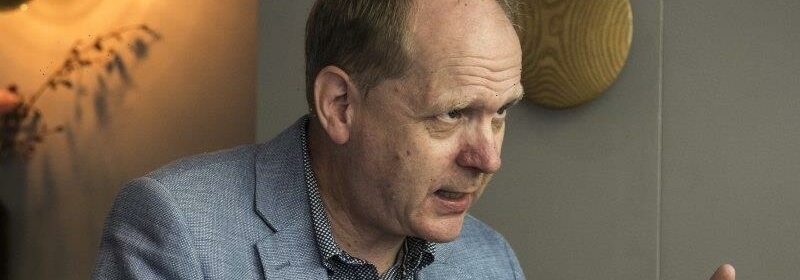We must not forget our duty of care to those in detention

Barely a week seems to go by without yet another concerning allegation about the treatment of detainees in Victoria’s corrections system.
Most worryingly, it is the most vulnerable members of the prison population who appear to be suffering disproportionately from the effects of understaffing, institutional indifference and inadequate healthcare, among them minors, Indigenous Australians and those in need of mental healthcare.
Thomas Embling Hospital in Fairfield.Credit:Scott McNaughton
Whistleblowers told an investigation by The Age, The Sydney Morning Herald and 60 Minutes earlier this month of widespread medical neglect. A prison doctor who had worked in multiple facilities in Victoria and NSW warned: “The failure to deliver adequate healthcare and the instinct to cover things up when it goes wrong hurts the most vulnerable prisoners, and that often means Indigenous prisoners.”
That followed the release in January of the findings of the coronial inquiry into the death of Indigenous woman Veronica Nelson, who died in 2020 while in custody after she had been arrested for a relatively minor offence. Victorian coroner Simon McGregor found Nelson’s death could have been avoided had she been given adequate medical care, and found that she had been treated in a “cruel and degrading” manner. Importantly, he reminded authorities that “everyone deprived of liberty must be treated with humanity”, and that “this right acknowledges the vulnerability of people in detention”. In other words, just because somebody is in prison, they have not been stripped of their rights to be treated humanely.
This seems to have been somewhat forgotten. Last week, investigative journalist Nick McKenzie reported that Indigenous and other vulnerable teenage detainees were being locked down in their cells for more than 22 hours a day at the Melbourne Youth Justice Centre in Parkville.
Whistleblowers raised concerns about what McKenzie described as the “rampant” use of solitary detention and its effects on detainees’ wellbeing.
A teacher who had worked at the centre alleged there had been “multiple suicide attempts and self-harm incidents. Most of these took place while boys were forced to isolate in their rooms.”
On Monday, we then learnt that the state’s only stand-alone mental health facility for detainees, the Thomas Embling Hospital in Fairfield, has had to temporarily close an eight-bed unit because of staff shortages.
This apparently means some offenders who would otherwise have received acute psychiatric care are now being housed in regular prison, which we can only conclude will have a harmful effect on their treatment and their future prospects of recovery and rehabilitation.
Forensic psychiatrist Andrew Carroll, who has assessed countless violent offenders, said on Saturday: “If we don’t optimise people’s health while they’re in prison, their mental health and the impact of any rehabilitative interventions are not going to be as strong. If we release them back out, still with the trauma-related symptoms, it’s back into that cycle of substance use and reoffending.”
While the government says the hospital will be operating at full capacity by the end of April, the unit closure may well indicate that the wider system is under stress as corrections authorities endeavour to hire and retain key staff and, critically, fill holes in rosters around the clock.
“It’s a real struggle,” said Paul Healey, state secretary of the Health and Community Services Union, which represents workers in mental health, disability and drug and alcohol services. “It’s just in this terrible spiral at the moment, where the workforce is getting more and more tired and worn out.”
Until staffing levels are swiftly rectified, Victoria’s detention system will probably continue to lose well-trained people to burnout and disillusionment, which risks further deterioration in the standard of care that is our responsibility towards those detained against their will.
The Andrews government is expanding Thomas Embling Hospital by 82 beds, at a cost of $462.5 million, to meet its commitments following the Royal Commission into Victoria’s Mental Health System.
Without additional staff there and beyond in the system, those promised improvements are at serious risk.
Patrick Elligett sends an exclusive newsletter to subscribers each week. Sign up to receive his Note from the Editor.
Most Viewed in National
From our partners
Source: Read Full Article
